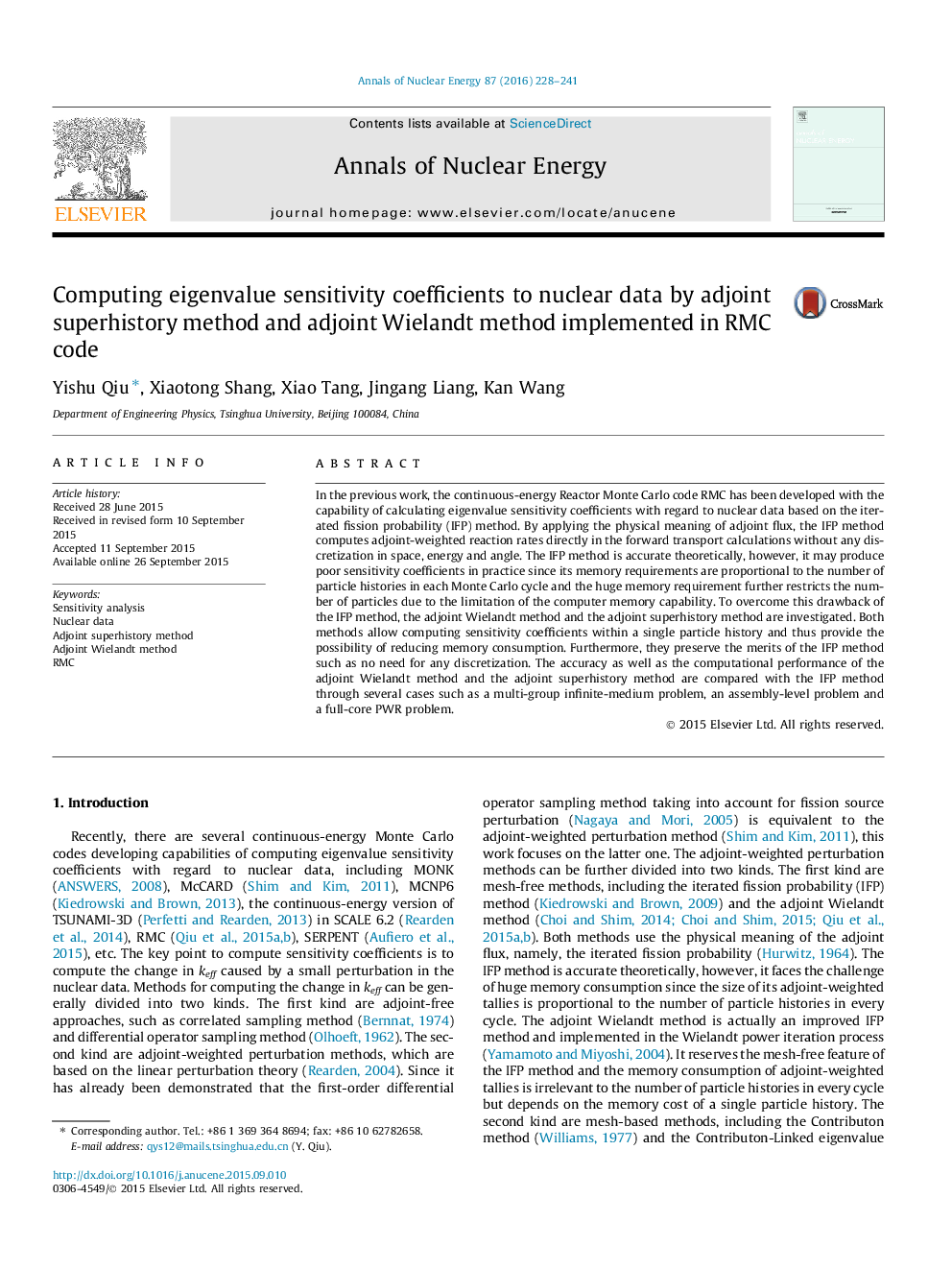| Article ID | Journal | Published Year | Pages | File Type |
|---|---|---|---|---|
| 8068014 | Annals of Nuclear Energy | 2016 | 14 Pages |
Abstract
In the previous work, the continuous-energy Reactor Monte Carlo code RMC has been developed with the capability of calculating eigenvalue sensitivity coefficients with regard to nuclear data based on the iterated fission probability (IFP) method. By applying the physical meaning of adjoint flux, the IFP method computes adjoint-weighted reaction rates directly in the forward transport calculations without any discretization in space, energy and angle. The IFP method is accurate theoretically, however, it may produce poor sensitivity coefficients in practice since its memory requirements are proportional to the number of particle histories in each Monte Carlo cycle and the huge memory requirement further restricts the number of particles due to the limitation of the computer memory capability. To overcome this drawback of the IFP method, the adjoint Wielandt method and the adjoint superhistory method are investigated. Both methods allow computing sensitivity coefficients within a single particle history and thus provide the possibility of reducing memory consumption. Furthermore, they preserve the merits of the IFP method such as no need for any discretization. The accuracy as well as the computational performance of the adjoint Wielandt method and the adjoint superhistory method are compared with the IFP method through several cases such as a multi-group infinite-medium problem, an assembly-level problem and a full-core PWR problem.
Keywords
Related Topics
Physical Sciences and Engineering
Energy
Energy Engineering and Power Technology
Authors
Yishu Qiu, Xiaotong Shang, Xiao Tang, Jingang Liang, Kan Wang,
